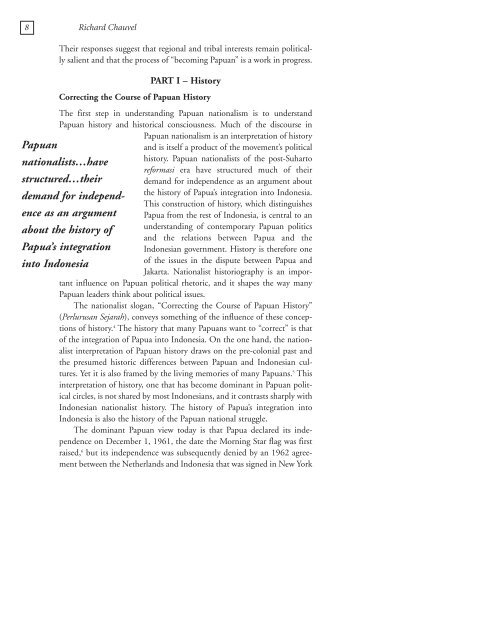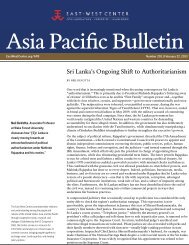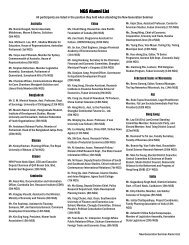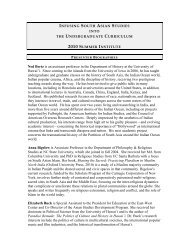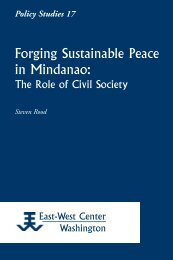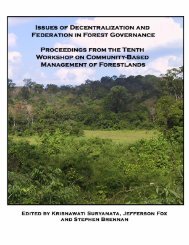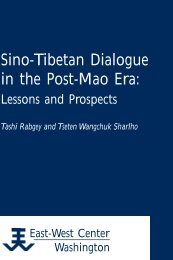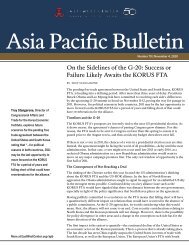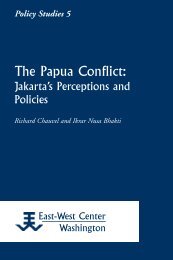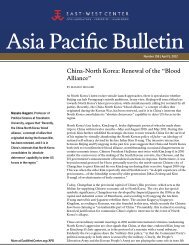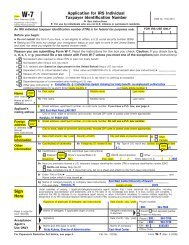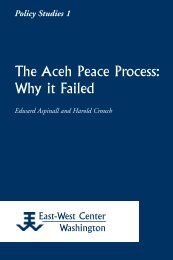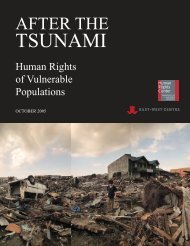Constructing Papuan Nationalism: History, Ethnicity ... - ScholarSpace
Constructing Papuan Nationalism: History, Ethnicity ... - ScholarSpace
Constructing Papuan Nationalism: History, Ethnicity ... - ScholarSpace
- No tags were found...
You also want an ePaper? Increase the reach of your titles
YUMPU automatically turns print PDFs into web optimized ePapers that Google loves.
8 Richard ChauvelTheir responses suggest that regional and tribal interests remain politicallysalient and that the process of “becoming <strong>Papuan</strong>” is a work in progress.PART I – <strong>History</strong>Correcting the Course of <strong>Papuan</strong> <strong>History</strong>The first step in understanding <strong>Papuan</strong> nationalism is to understand<strong>Papuan</strong> history and historical consciousness. Much of the discourse in<strong>Papuan</strong> nationalism is an interpretation of historyand is itself a product of the movement’s politicalhistory. <strong>Papuan</strong> nationalists of the post-Suhartoreformasi era have structured much of theirdemand for independence as an argument aboutthe history of Papua’s integration into Indonesia.This construction of history, which distinguishesPapua from the rest of Indonesia, is central to anunderstanding of contemporary <strong>Papuan</strong> politicsand the relations between Papua and theIndonesian government. <strong>History</strong> is therefore oneof the issues in the dispute between Papua andJakarta. Nationalist historiography is an importantinfluence on <strong>Papuan</strong> political rhetoric, and it shapes the way many<strong>Papuan</strong> leaders think about political issues.The nationalist slogan, “Correcting the Course of <strong>Papuan</strong> <strong>History</strong>”(Perlurusan Sejarah), conveys something of the influence of these conceptionsof history. 4 The history that many <strong>Papuan</strong>s want to “correct” is thatof the integration of Papua into Indonesia. On the one hand, the nationalistinterpretation of <strong>Papuan</strong> history draws on the pre-colonial past andthe presumed historic differences between <strong>Papuan</strong> and Indonesian cultures.Yet it is also framed by the living memories of many <strong>Papuan</strong>s. 5 Thisinterpretation of history, one that has become dominant in <strong>Papuan</strong> politicalcircles, is not shared by most Indonesians, and it contrasts sharply withIndonesian nationalist history. The history of Papua’s integration intoIndonesia is also the history of the <strong>Papuan</strong> national struggle.The dominant <strong>Papuan</strong> view today is that Papua declared its independenceon December 1, 1961, the date the Morning Star flag was firstraised, 6 but its independence was subsequently denied by an 1962 agreementbetween the Netherlands and Indonesia that was signed in New York<strong>Papuan</strong>nationalists…havestructured…theirdemand for independenceas an argumentabout the history ofPapua’s integrationinto Indonesia


